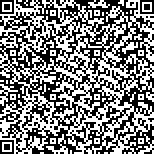| 本文已被:浏览 141次 下载 10次 |

码上扫一扫! |
|
|
| 刮痧联合刺络拔罐对稳定期慢性阻塞性肺疾病患者症状及未来风险的影响 |
|
张虹1,2, 苏景深3, 马兆润1,2, 刘臣超1,2, 冯李婷1,2, 张凤超1,2, 陈瑞雪1,2, 苏东岳1,2
|
|
1.天津市海河医院康复医学科, 天津 300350;2.天津市呼吸疾病研究所, 天津 300350;3.天津中医药大学第二附属医院肺内科, 天津 300250
|
|
| 摘要: |
| [目的] 评价刮痧联合刺络拔罐对稳定期慢性阻塞性肺疾病(COPD)患者症状及未来风险的影响。[方法] 将2021年12月1日—2023年12月31日期间招募的120例稳定期COPD患者随机分为刮痧刺络拔罐组、刮痧组、对照组,每组各40例。刮痧刺络拔罐组给予循经刮痧联合刺络拔罐。刮痧组给予循经刮痧,对照组给予假刮痧。整个治疗期共2个疗程(农历三九和农历三伏),含刮痧(假刮痧)8次,刺络拔罐治疗24次。随访期6个月。治疗前后、随访时,记录患者肺功能(PFT)指标,包括用力第1秒呼气量(FEV1%)和1 s用力呼气容积与用力肺活量的比值(FEV1/FVC%),动脉氧分压(PaO2)和动脉二氧化碳分压(PaCO2),圣乔治呼吸问卷(SGRQ)评分,6 min步行试验距离(6MWD),急性加重事件次数。评估患者治疗前后、随访时各指标的变化。[结果] 研究过程中,刮痧刺络拔罐组和刮痧组的PET、PaO2、SGRQ评分数值均出现上升,3组在治疗前、治疗后、随访时3个时间点进行重复测量方差分析显示,以上指标的时间和组别之间的交互作用均有统计学意义(P<0.05)。组内比较显示,刮痧刺络拔罐组和刮痧组治疗后、随访时PET、PaO2指标数值及SGRQ评分均较各自治疗前提高(P<0.05)。组间比较显示,刮痧刺络拔罐组和刮痧组治疗后、随访时的PET指标及SGRQ评分比较,差异均无统计学意义(P>0.05),而治疗后、随访时的PaO2比较,差异有统计学意义(P<0.05),且均高于对照组(P<0.05)。但3组PaCO2的重复测量方差分析显示,时间和组别之间的交互作用差异无统计学意义(P>0.05),组内和组间比较显示差异无统计学意义(P>0.05)。[结论] 刮痧刺络拔罐、刮痧均能够有效改善稳定期COPD的气流受限,提高动脉氧含量,增加心肺耐力,提高生活质量,降低急性加重事件次数,具有后治疗效应。两种疗法在改善气流受限、提高心肺耐力,提高生活质量,降低未来加重风险方面作用基本一致,且均不能改善CO2潴留状态。但刮痧刺络拔罐比刮痧更能够显著提高血氧含量。 |
| 关键词: 刮痧 刺络拔罐 COPD 单盲 随机对照试验 |
| DOI:10.11656/j.issn.1672-1519.2025.03.04 |
| 分类号:R563 |
| 基金项目:天津市卫生健康委员会,天津市中医药管理局中医中西医结合科研课题(2021148);马兆润天津市名中医传承工作室。 |
|
| Effect of Guasha combined with blood-letting puncture plus cupping therapy on symptoms and future risk of patients with stable COPD |
|
ZHANG Hong1,2, SU Jingshen3, MA Zhaorun1,2, LIU Chenchao1,2, FENG Liting1,2, ZHANG Fengchao1,2, CHEN Ruixue1,2, SU Dongyue1,2
|
|
1.Rehabilitation Department, Tianjin Haihe Hospital, Tianjin 300350, China;2.Tianjin Institute of Respiratory Diseases, Tianjin 300350, China;3.Pulmonary Medicine Department, The Second Affiliated Hospital of Tianjin University of Traditional Chinese Medicine, Tianjin 300250, China
|
| Abstract: |
| [Objective] To evaluate the effect of Guasha combined with blood-letting puncture plus cupping therapy on symptoms and future risk of stable COPD patients. [Methods] A total of 120 patients with stable COPD recruited from December 1,2021 to December 31,2023 were randomly divided into the Guasha combined with blood-letting puncture plus cupping group,the Guasha group and the control group with 40 cases each. The Guasha combined with blood-letting puncture plus cupping therapy was applied to the test group,the single Guasha therapy was applied to the Guasha group,and sham Guasha was applied to the control group. The whole treatment period consisted of 2 courses(the Dog Days and the Coldest Days of Winter),including eight times of Guasha(sham Guasha) treatment and twenty-four times of blood-letting puncture plus cupping treatment for all courses. The follow-up period was 6 months. Before and after treatment and during follow-up,pulmonary function(PFT) indexes were recorded,including forced first second expiratory volume(FEV1%) and FEV1/FVC%(ratio of forced expiratory volume in one second to forced vital capacity),arterial partial pressure of oxygen(PaO2) and arterial partial pressure of carbon dioxide(PaCO2),St. George’s Respiratory Questionnaire(SGRQ),6-minute walk test distance(6MWD),and the number of acute exacerbations. The changes of indexes before and after treatment and during follow-up were evaluated. [Results] During the study,the PET,PaO2 and SGRQ scores of both Guasha combined with blood-letting puncture plus cupping group and Guasha group increased,and repeated measurement ANOVA at three time points before treatment,after treatment and during follow-up showed that the time of the above indicators and the interaction between the groups were statistically significant(P<0.05). Intra-group comparison showed that the PET,PaO2 index and SGRQ scores of the Guasha combined with blood-letting puncture plus cupping group and Guasha group after treatment and during follow-up were higher than those before treatment(P<0.05). Comparison between groups showed that there were no differences in PET index and SGRQ score between Guasha combined with blood-letting puncture plus cupping group and Guasha group after treatment and during follow-up(P>0.05),but there were differences in PaO2 after treatment and during follow-up(P<0.05),and both were higher than those in control group(P<0.05). However,repeated measurement ANOVA of PaCO2 in the three groups showed no statistical significance in the interaction between time and groups(P>0.05),and there were no differences in intra-group and inter-group comparisons(P>0.05). [Conclusion] Both the Guasha combined with blood-letting puncture plus cupping and the single Guasha can effectively improve the airflow limitation of stable COPD,the arterial oxygen content,the cardiopulmonary endurance,improve the quality of life,reduce the number of acute aggravation events,and have a post-treatment effect. Basically,the two therapies have the same effects in improving airflow limitation,improving cardiorespiratory endurance,and reducing the risk of future exacerbations. And neither therapy could improve the state of CO2 retention. However,the Guasha combined with blood-letting puncture plus cupping can significantly improve blood oxygen content better than Guasha alone. |
| Key words: Guasha blood-letting puncture plus cupping COPD single blind RCT |
